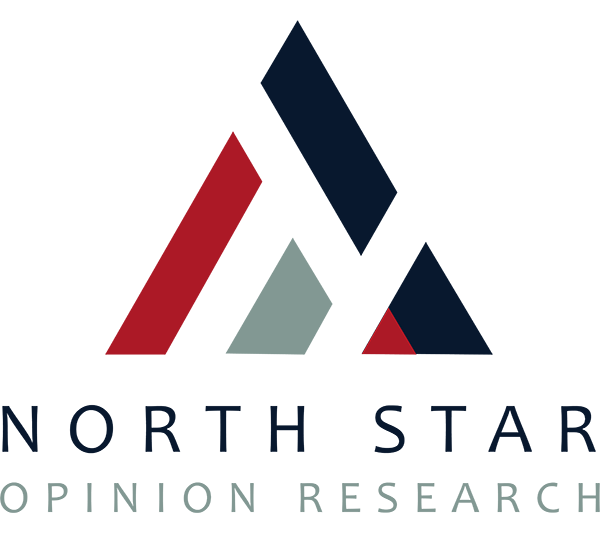Services
Services
North Star Opinion Research is a full-service research firm that conducts surveys and focus groups. The principals also regularly speak and present on polling, campaigns, and the political issues of the day. No matter what your goals or budget are, North Star can put together a research plan that will provide you with the data and analysis you need to succeed.
The vast majority of our work is for the private use of our clients. In the case of Resurgent Republic, we were able to share the results.
Surveys
Surveys are at the heart of North Star’s research. They answer the most basic question for any campaign or organization, “What do people think?”
The best surveys go well beyond the horse-race questions of who is ahead or behind on the ballot test. Trust us, we know the ballot test is ultimately what gets the focus. After all, we wouldn’t be conducting surveys if not for the competition.
But in a political or public-affairs campaign, the horse-race questions — whether a ballot test or a support/oppose on an issue — is best used as a means to provide context for the other results. What do our supporters think about immigration policy? What do undecided voters say about this aspect of health care reform? With those questions answered, we can help formulate a winning message.
Usually, those questions are answered the traditional way: on a landline telephone. But those telephone calls are increasingly conducted on cell phones to make sure we’re talking to everyone, whether they’ve cut-the-cord or not. And under some circumstances — with a good list of the target audience, or in the case of needing to test visuals — an online survey is the way to go. Client need drives both the questionnaire design and the survey methodology as well.
Focus Groups
Sometimes we want to know more than just what people think. We need to know how they formulated those thoughts and what motivated them to come to a particular conclusion. That’s where focus groups are useful.
Focus groups are discussions with a much smaller group of people than participate in a survey. But that small group allows us to dig much deeper into the thought process of our target group, whether they are voters or lobbyists and congressional staffers. You don’t need a focus group to find out that congressional staffers are cynical. But a focus group is a great tool to understand what breaks down that cynicism to present an effective message.
Focus groups are also a great way to test television ads. You can see reactions live and find out why participants reacted that way. “This one was right in your face. It was an explosion.” … “I pay enough in taxes already, and I hope I won’t be paying any more.” “I liked that she had a choice, could stand on her own, and still supported him.”
Focus groups also present the opportunity to get responses through dial testing. Dial testing allows us to supplement the give-and-take of a small group with a slightly larger sample of voters (often 30 at a time), registering their reactions second-by-second. This allows clients to see which line in a speech or ad was most — or least — effective. And if there are a number of ideas to test before final production of ads, and the project calls for a large sample to make decisions on what to produce, online ad testing works well for that need.
Speeches
And now for something completely different.
Yes, you put on your trade association conferences to communicate your message and to allow your members a chance to network. But you want to give them something to talk about, too. Especially for groups with an interest in the upcoming elections, a speech by one of our principals offers the chance to place your issues in the context of elections and give your members the chance to pick the brains of someone who spends their professional time thinking about politics.
Our principals are also experienced in campaigns and polling, and are available to participate in panel discussions, candidate training events, and everything in between.

